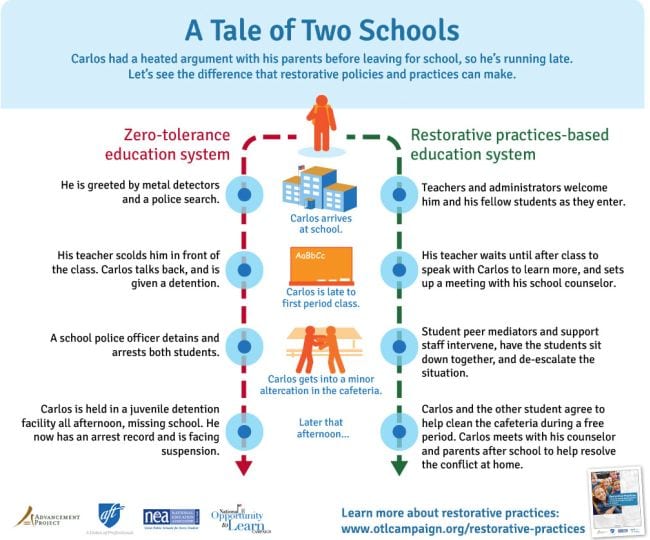Q and A for SEL
The Student Learning Recovery grant requires that we address Social Emotional Learning in our professional development. The following are scenarios that Dr. Kristi Hape went over during her webinars. They are listed below.

- Students are making inappropriate noises.
- Have procedures set ahead of time around when students need help from the teacher. Students should not be speaking out of turn or inappropriately.
- Try to talk with the student and use restorative justice (see above)
- Talk with the students in small groups and recognize that someone is making inappropriate noises and that’s just not OK. Get them to recognize that it’s a violation of the classroom policy or plan.
- Whole class reward-Put a tally mark up on the board every time someone talks inappropriately. At the end of the week if everyone has zero tally marks then everyone gets the reward. Make the reward something like 10 extra minutes tech time.
- Pulling students out of STEM time in order to punish them. Students should never be pulled out of class, regardless of the class, to punish them.
- Students struggle with behavior before breaks. When students come from trauma, school is their safe place and the idea of being at home for weeks is very stressful. Check in with the social worker and make sure that they are aware of the students that might need a little bit of extra TLC.
- Maintain the routine in your classroom
- Do not give rewards for in class performance
- Don’t count down the days. This is stressful for students who want to be at school.
- Kids arrive hungry to school. Provide snacks. Make sure you reach out to parents and ask them if they need help.
- Physical aggression. Define what the aggression is and specifically call out what type of aggression it is.
- Gather data on the aggression itself
- Look at the pattern of behavior (Time of day, day of the week)
- If the behavior is happening at a certain time, have the child take a break prior to that time.
- If the behavior is happening during unstructured time, tighten up your procedures. There may need to be work on social skills.
- Make a positive phone call for your most troubled students early in the semester.